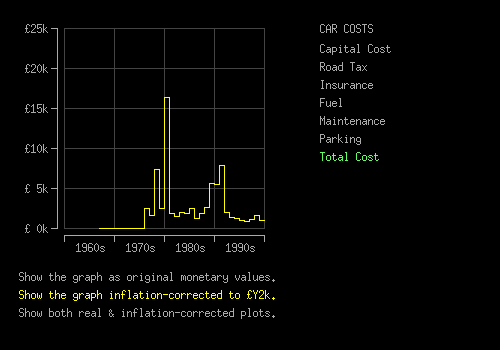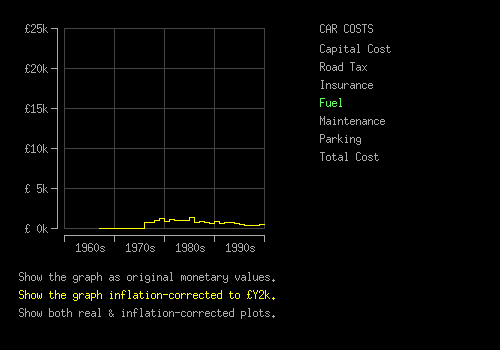A Vital Need
Apart from severely restricting where I could work and the size of the area over which I could service potential clients or customers, the loss of my car would have critical consequences for my family.
We live in a suburban housing estate. From here there is no public transport within 1 km. The nearest rail station and main bus stop is 2 km. In any case, rail fares are too expensive for anybody living on State welfare. The only practical mode of transport for anybody without a car is a taxi. Taxis are far too expensive for anybody living on welfare. We walk wherever we can.
For Shopping
In fact, we always walk the 2km into the town to do light shopping. However, a main supermarket shop for a family of 4 cannot practically be carried other than in a vehicle.
Supermarkets are not practically accessible without a car. They are built to serve car-owning customers. Without a car, therefore, it would be impossible for us to shop on a weekly basis. We could no longer buy in weekly quantities. We would lose the resultant economy of scale on our food purchases. We would also have to make far more shopping trips to more expensive shops.
Dangerous Assumption
A generation ago, if you became too ill to go outside, then you could call a doctor. He would come and see to you at your house. This is no longer so.
Never since the beginning of the 1980s have I been able to get a home visit from a doctor. They simply will not come. Only in extreme emergencies — namely when my wife became certifiable and again when my son died — did a doctor actually come to my house. Even then it was not my call to which he responded. He came only as a result of a call from the ambulance service.
It is over 3 km to my doctor's main surgery. If I am well enough to walk 3 km in the freezing winter fog and then 3km back home again, then I am well enough not to need a doctor. It is blindly assumed that everybody has a car.
The Normal Becomes Impossible
It would also become impossible to install our daughter in her university halls with all her clothing, her many and heavy books and other bulky items which she is expected to have for a term at university.
We could no longer ferry our sons to and fro to extracurricular activities at school. Our elder son could therefore no longer attend the mandatory sessions to qualify for his Duke of Edinburgh award, which he had so much hoped to achieve.
We could no longer as a family visit my wife's relatives who live 130km away. In fact, as a family, we could no longer travel anywhere! A car is therefore a definite necessity in today's society.
My family's inflation-corrected motoring costs over the years since 1976 are shown in the following graph applet. See table for detailed figures from which this chart was generated.

The peaks are the capital costs when I bought a new car. Our family has only ever had one car at a time. The gradual rise from the year 1996-97 was caused by the need to replace long-life parts. However, this is considerably less than the capital cost of a new car.
The only component of the cost of running the car, apart from short-term consumables like tyres and exhaust systems, which can be actively reduced by travelling less, is the cost of petrol. Our petrol cost is shown in detail in the following chart. Some of the lesser components of our car costs can be seen on an expanded scale by clicking the appropriate radio buttons.

From the applet graph it is very clear that we have fought hard to reduce travel to an absolute minimum. It is now less than a third what it was when I was running my business. It is indeed less than half what it was before I started my business. This is despite the fact that my need to travel is now greater than it has ever been. One needs to cover more ground to find work than ever one does to do work.
Unsustainable
Our car is getting old. It will not last very much longer. On State welfare we will certainly never be able to afford another one. I therefore live in fear of how we will be able to do the shopping for ourselves and our children when we no longer have a car. I have no idea how, or even if, my wife will be able to receive her necessary depot injections or how we will cope if one of my sons gets an asthma attack.
The reliable operational life of the car is 10 years. Now, in 1999, those 10 years are up. The capital cost of a replacement is £10,000 (1993-94 values). A provision of £1000 a year should therefore be made for its eventual replacement. However, within the budget available under State welfare, this simply could not be found. When the car wears out, we will not be able to buy another. Our status quo cannot therefore be sustained.
Market Forces
The resident forces of the capitalist free market are working relentlessly to exacerbate the unsustainability of our mobility.
I saw a recent television documentary about the car industry. It showed thousands of surplus new cars and little used second hand cars parked permanently in vast arrays on disused airfields. This was to take them out of circulation to keep car prices artificially high. This is in a country where untold numbers of people are kept stranded without the necessary means to move around 'normally' within their socio-economic environment.
It is therefore no surprise to see the
puppets of capitalism implementing policies which are also working relentlessly to exacerbate the unsustainability of our mobility.
There is strong popular concern throughout the world today about global warming. It is thought that the main contributor to this phenomenon is the vast rate at which carbon dioxide is emitted from car exhausts. Governments are therefore under popular pressure to reduce the use of the car. All well and good.
However, the dubious means naturally chosen by the government of a capitalist country to effect a reduction is fuel tax. Increasing fuel tax makes car journeys more expensive. This makes people travel less. This reduces the carbon dioxide emitted from their cars. It works! Unfortunately for the likes of us, this sledge hammer method of reducing car journeys takes no account of the make-up of the consequent reduction in vehicle use.
Government seems to assume that it reduces each person's use of the car equally — or at least according to some kind of equitable proportion. But it doesn't. It does not take much thought to see what it really does. It creates a minor irritation to the rich, requires the affluent majority to tighten their belts a little, and forces the poor off the road altogether.
So how do we look for work? How can we do our shopping? How can we visit our sick and ageing parents? But these are not issues upon which the will of the self-seeking voting majority is focused. They are therefore not the most pressing concern of a democratically elected government.
The Root Cause
If government really wished to reduce carbon dioxide emission, it would tackle the root cause of the problem. Why is the car used so much? Because capitalist corporations require their employees needlessly to commute large distances from their suburban dormitories to the corporate office and back each day. Technology is readily available which could allow any office employee to work at home or in a local cottage office. This would reduce car journeying several fold. But the capitalist will not give time to the idea of his 'untrustworthy' slaves working beyond the piercing gaze of his beady eye.
Finally, if fuel consumption must be reduced by more direct means, there is another way. Rationing according to reasonable need is fairer than pricing. With modern smart-card technology, this could be implemented easily and cheaply. But in a capitalist society, who cares about being fair?
Parent Page |
© Jul 1994 Robert John Morton


